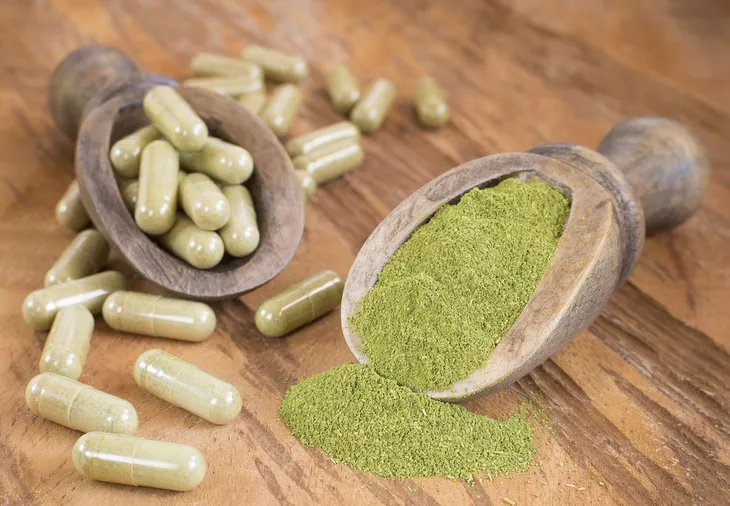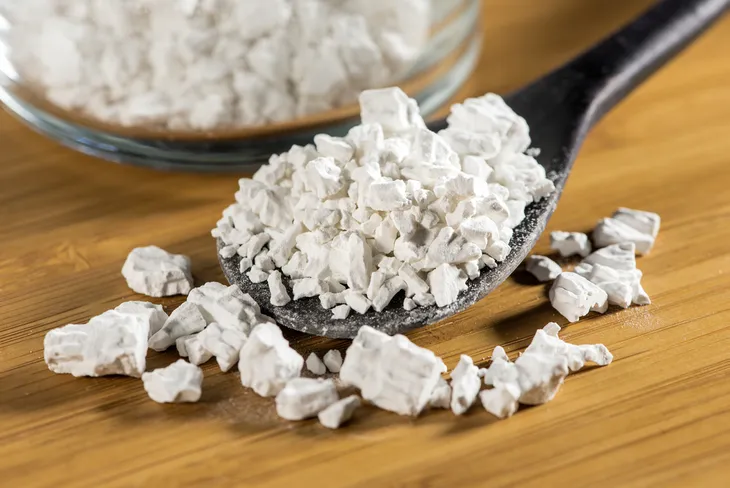Fevers – they can come out of nowhere, during any season, and can hit kids especially hard (kids tend to spike higher temperatures than adults). You can always dose up with over-the-counter drugs as per the standard procedure for many parents, or you can turn to some gentler alternatives.
If you don’t have the right medications in the house to curb a fever, or prefer natural solutions, you can still tackle a fever head-on. Here are 13 natural fever remedies to try the next time you’re feeling under the weather…
Take a Warm Bath
Because your internal temperature is off the scale, when you sit in a lukewarm bath, it’ll feel nice and cool, notes Best Health. The source warns against plunging yourself into a cold tub, as this can change the blood flow to your organs and actually end up raising your temperature even more.
The site notes to use a sponge to rinse areas that are especially helpful in cooling you down – such as the armpits and groin. The evaporation of the cool water will make you feel better. When you’re out of the tub, place cold and damp washcloths on your forehead and back of the neck, it adds.
Drink Plenty of Fluids
Dr. Axe notes that flooding your system with water or fruit juice diluted with water for kids can help flush out toxins. Cutting juice with water will reduce the glucose levels, where bacteria can thrive, explains the source.
Try to stay away from “sports” drinks, as they have a lot of added sugar and chemicals, adds the source. These additives can cause inflammation in your body, making your recovery from the fever slower. Instead of tap water, you can also try coconut water and herbal teas, it adds.
Consume Cod Liver Oil
Wellness Mama explains that fermented cod liver oil can naturally shorten the life of the fever as well as providing “important immune boosting nutrients”. The site says that capsules are good for adults, and gel is more suitable for kids who might not be able to swallow a pill.
The same source says these cod liver oil supplements can be used daily as a way to ward off illnesses to begin with. It arms your immune system to deal with bacterial or viral infections that lead to a fever to begin with. Always check with your doctor before you start a new supplement or medication to prevent any unintended side effects.
Sleep it Off
You may not always have the convenience of being able to hit the hay when your temperature is skyrocketing, but this is one of the best ways to let your body deal with this temporary illness. Rest begins a natural cycle of healing and restoration within the body, notes Dr. Axe.
Your body produces more white blood cells (your blood’s army against infections) while you’re resting, and particularly when you’re getting quality sleep, adds the source. If you feel too sick to sleep, try the bath route or drink some liquids first.
Starve It (But Not Entirely)
WikiHow explains there’s actually some truth to that old saying, “feed a cold, starve a fever.” It notes that studies have shown this to be true, and that eating big meals can use up the energy your body needs to fight off the infection. But that doesn’t mean you shouldn’t eat when you have a fever. Like always, moderation is key, even when you are sick.
With that being said, the same source also suggests snacking on healthy fruits such as berries, oranges and watermelon, to keep you hydrated and supply vitamin C, which is an ally against fevers. If you’re feeling a bit hungry, try eating some soup – it can be broth on its own (or with a bit of meat tossed in for protein) or with rice and vegetables. “Studies have shown that chicken soup may actually have medicinal properties,” it explains.
Try Soaking Socks
Best Health says one of the best methods to quickly bring down a temperature of a fever is to apply wet socks. First you should place your feet in warm water, then soak a thin pair of socks in cold water, wring out the excess, and put them on before bedtime.
You should also put a pair of dry, wool socks over the wet socks. “This approach helps ease a fever by drawing blood to the feet, which dramatically increases blood circulation,” it explains. Sounds a bit strange, but it might bring down your temperature a little bit and make you more comfortable.
Soak a Sheet
The source also notes that you could try to cool yourself down by soaking a sheet instead of just your socks. This remedy is kind of an old timer folk remedy that isn’t practiced too much today. Doctors warn against lowering your body temperature too quickly, so instead of soaking a sheet, blanket, or large beach towel in ice cold water (which might feel nice, but in reality is actually dangerous), try soaking it in slightly cool water, not cold.
Once you’ve soaked your blanket, Best Health then advises to lie down with it for about 15 minutes to find some short lived relief. You need to be careful when you put cold temperature things against your skin when you have a fever. The cold can cause you to shiver, which will then actually increase your core body temperature.
Use Apple Cider Vinegar
Top10HomeRemedies.com explains that this particular type of vinegar is effective in reducing fevers quickly, as it contains acid that draws heat from the skin. There are a few ways you can use apple cider vinegar in your battle against fever.
One way is to add 1/2-cup of the vinegar to your lukewarm bath water, and soak in it for at least 5-minutes, explains the source. You can also soak a washcloth in 1-part apple vinegar and 2-parts cool water, placing it on your forehead or stomach. Or you can go more direct, mixing 2-teaspoons of apple cider vinegar and 1-teaspoon of honey into a glass of water. Drink 2 or 3-glasses of this mixture per day, it adds.
Brew Yourself a Tea
In addition to drinking lots of fluids, you could try brewing yourself a tea. There are several different herbal teas that could help when it comes to battling a fever. For example, yarrow tea works to open up our pores and encourage sweating which is said to help bring down a fever. Best Health recommends steeping a tablespoon of yarrow in a cup of boiling hot water. Let it sit for 10-minutes and cool. Then drink one or two cups until the sweating starts!
The next herbal tea to try is elderflower. This tea will also encourage sweating, and is known to be good for relieving cold and flu symptoms like excess mucus. “To make elderflower tea, mix two teaspoons of the herb in a cup of boiled water and let it steep for 15 minutes,” writes Best Health. “Strain out the elderflower. Drink three times a day as long as the fever continues.”
The last herbal tea to try is hot ginger tea which again, induces sweating. To brew this tea, steep a half teaspoon of minced ginger root in a cup of boiling water. Let it sit before straining it. Then drink and enjoy! Always make sure to drink plenty of fluids when you have a fever. The extra sweating can dehydrate you and end up causing more issues.
Eat Spicy Food
This one might seem strange, but according to research, spicy food can help when feeling sick. You might have noticed that spicy food makes our nose runny and that’s because it thins out mucus making it easier to expel, says Healthline. This makes it great for relieving any kind of congestion.
When it comes to a fever, Best Health advises sprinkling some cayenne pepper on food before eating it. “One of its main components are capsaicin, the alarmingly hot ingredient that’s found in hot peppers,” explains the source. “Cayenne makes you sweat and also promotes rapid blood circulation.”
It’s important to note, while spicy foods can help with congestion, fever and cough relief, you shouldn’t try it if you’re suffering from an upset stomach. In that case, this remedy will likely only make it worse.
Eat Some Probiotics
Probiotics are good for the gut and keeping our gut happy and healthy is how we keep ourselves feeling happy and healthy. In case you didn’t already know, the condition of our gut has a huge impact on our overall health which is why we need to eat foods that nourish and improve our gut health. Probiotics are perfect for when we’re not feeling our best because they help support our immune system, and according to Dr. Axe, 80-percent of our immune system is actually located in the digestive tract!
“When you have a fever, it’s your immune system that’s compromised. Probiotics can help reduce the risk of certain acute common infectious diseases and enhance immune function,” writes the source. The best way to consume probiotics while also battling a fever is to sip on some kombucha or miso soup.
Moringa
Moringa has become popular as of recently due to its numerous health benefits. It’s a tropical plant that contains “vitamins, minerals, antioxidants, and antibacterial agents,” writes Healthline. It is said to be effective in reducing fevers after a 2014 study found that Moringa bark was able to reduce fever in rabbits. Unfortunately, there are not yet any human studies.
Healthline also warns not to use Moringa if you are pregnant or take any medication with substrates of cytochrome P450, like lovastatin (Altoprev), fexofenadine (Allegra), or ketoconazole (Nizoral).
If you’re interested in trying Moringa, it can be bought as a powder or supplement at any health food store.
Kudzu Root
You might not be familiar with this one but it’s been used in traditional Chinese medicine for a long time. This medicinal herb is touted to have “anti-inflammatory properties and may help reduce pain,” explains Healthline. The source then refers to a 2012 study on rats where kudzu root was effectively found to reduce fevers. However, this study has not yet been performed on humans.
It’s important to note that you should not use kudzu root if you “take tamoxifen, have hormone-sensitive cancer, such as ER-positive breast cancer,” or if you “take methotrexate (Rasuvo).” You should also consult with a doctor before using this remedy if you’re on diabetes medication because it could lower your blood sugar.
















